A Century of Service and Impact
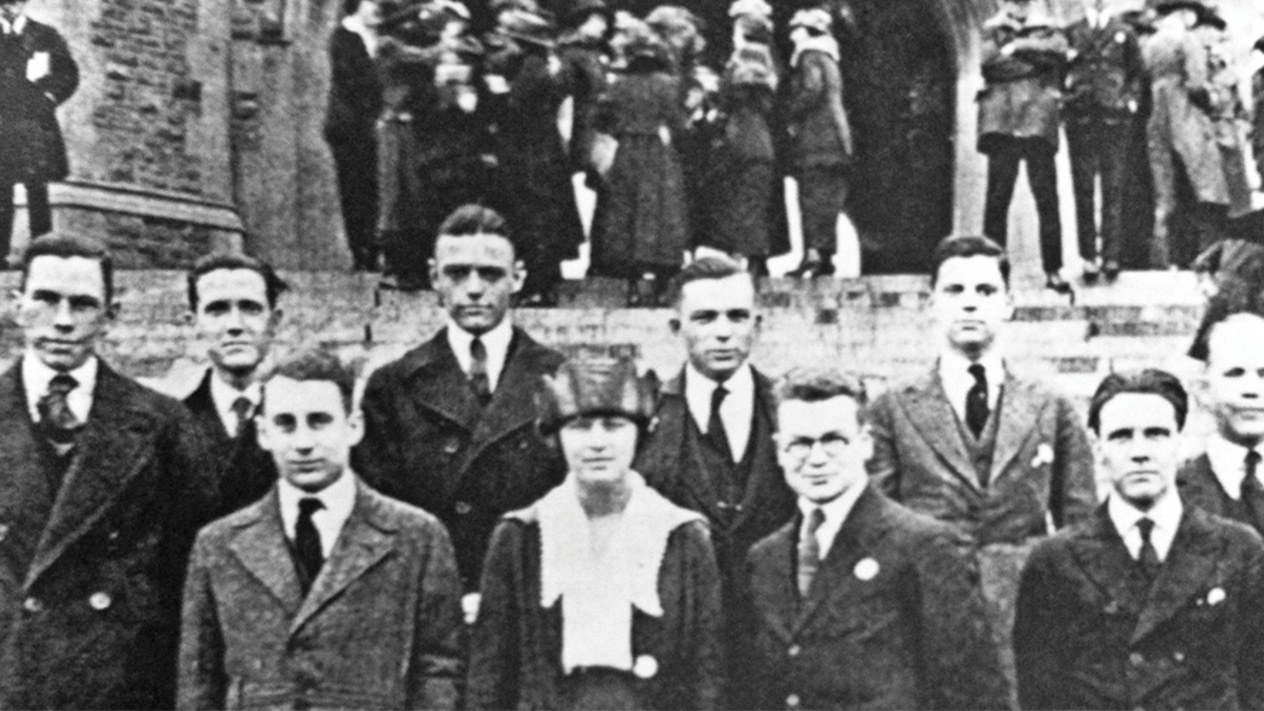
Our History
1917–1979
Washington University’s business school was officially founded in 1917. Called the School of Commerce and Finance at the time, it graduated its first class of 10 students, including one woman, Margaret Haase, three years later. Over the next three decades, the school steadily grew, weathering both the Great Depression and World War II.
In 1950, the school began awarding MBA degrees as business models and new technologies were rapidly expanding productivity and profits. In 1953, WashU joined with Harvard, Chicago, Northwestern and Wharton to develop a business school admissions test, known today as the GMAT. And in the next decade, Olin professor Sterling Schoen pursued social change in the corporate world by founding the Consortium for Graduate Study in Management, which offered scholarships and mentorship to African American MBA students.
Our History
1920–1970
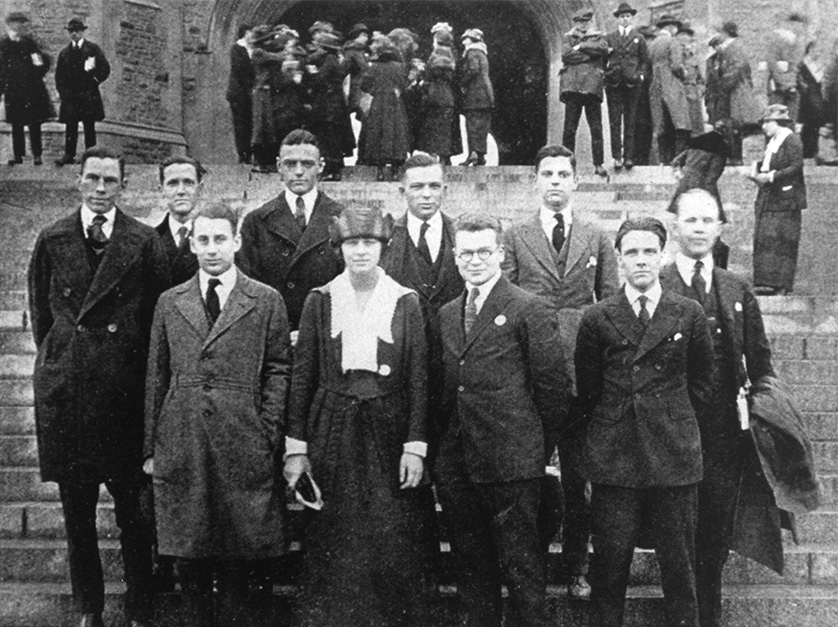
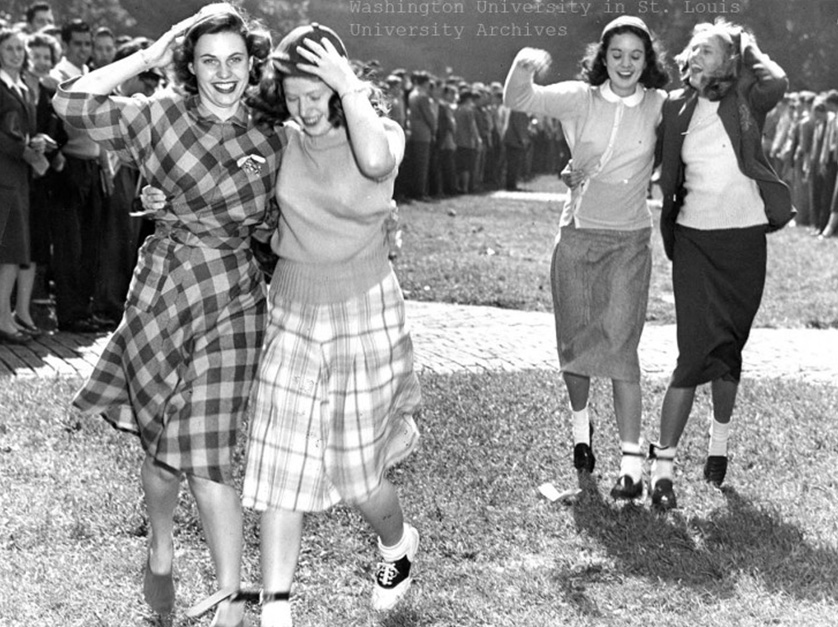
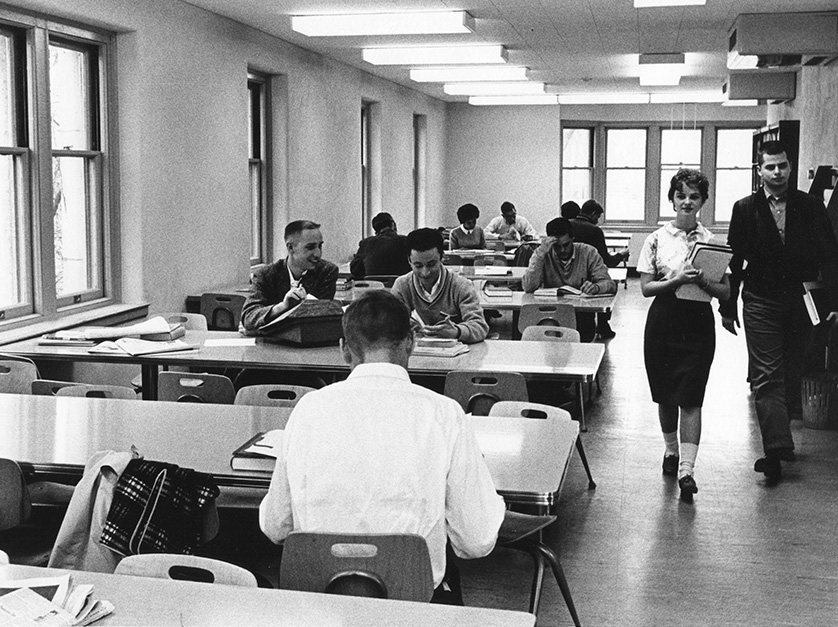
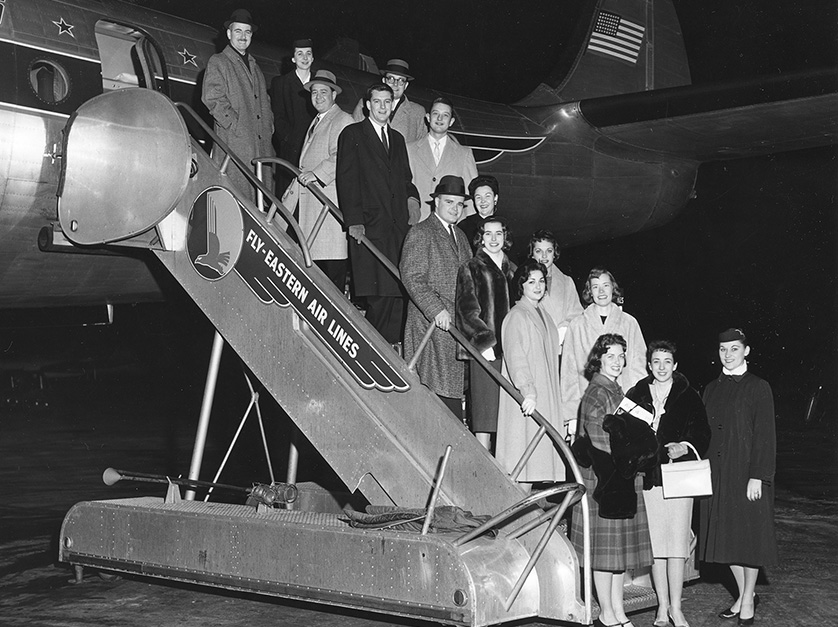
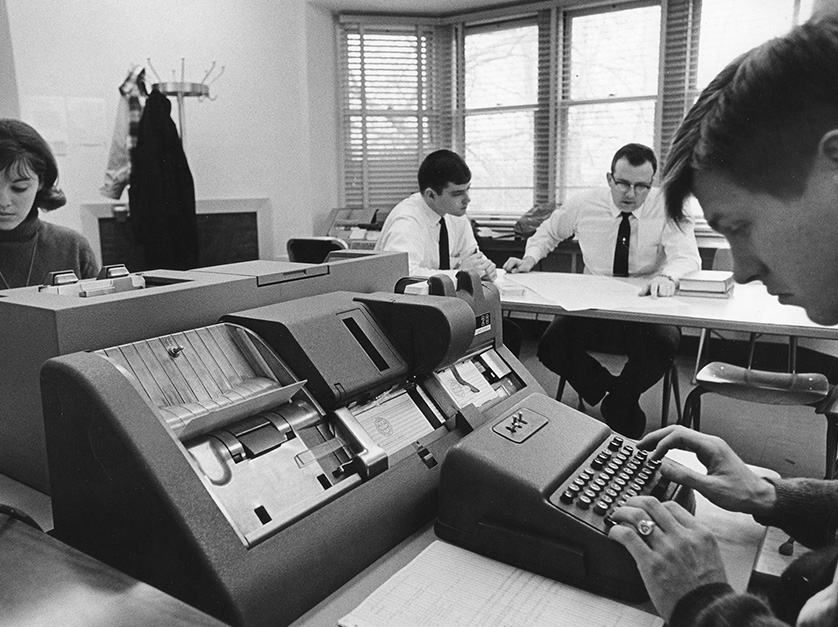
1980–Present
The 1980s brought much change to the business school. In 1983, it began offering an Executive MBA for senior leaders. Simon Hall, dedicated in 1985, was a state-of-the-art building to serve as a nexus for students, faculty and the business community. Just a year later, the school was named in honor of WashU benefactor and trustee John M. Olin.
Another building, the Knight Center, was dedicated in 2001, followed by the creation of a partnership with Fudan University in Shanghai in 2002 to establish the school’s first international EMBA program. About a decade later, the school introduced an EMBA in Mumbai in partnership with the Shailesh J. Mehta School of Management at the Indian Institute of Technology in Bombay.
Olin doubled its footprint on the Danforth Campus in 2014 with the addition of much-needed classroom and office space in two new buildings: Knight Hall and Bauer Hall. The year 2017 saw WashU Olin celebrate its centennial, 100 years of leadership in business education.
Through it all, WashU Olin has remained a constant, meeting every challenge with a passionate commitment to rigorous research, academic study, innovative thinking and Values Based, Data Driven™ leadership. Today’s students, like the generations of alumni before them, are confident and conscientious global citizens prepared to create their own groundbreaking achievements and change the world, for good.
Our History
1980–Present
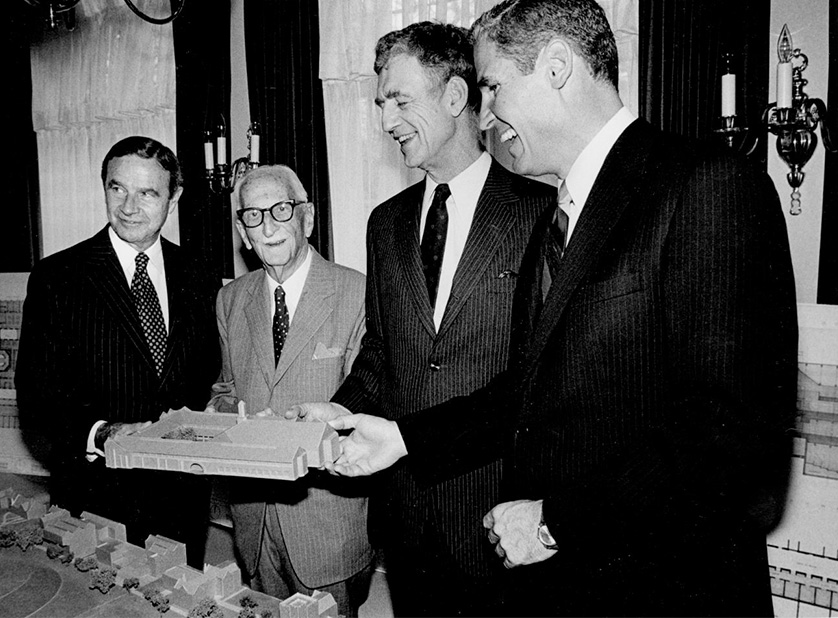
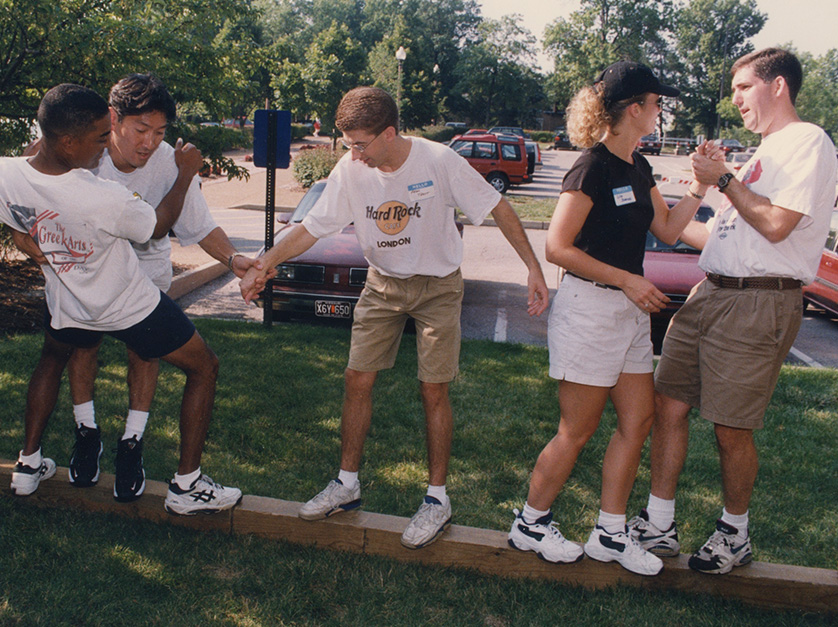
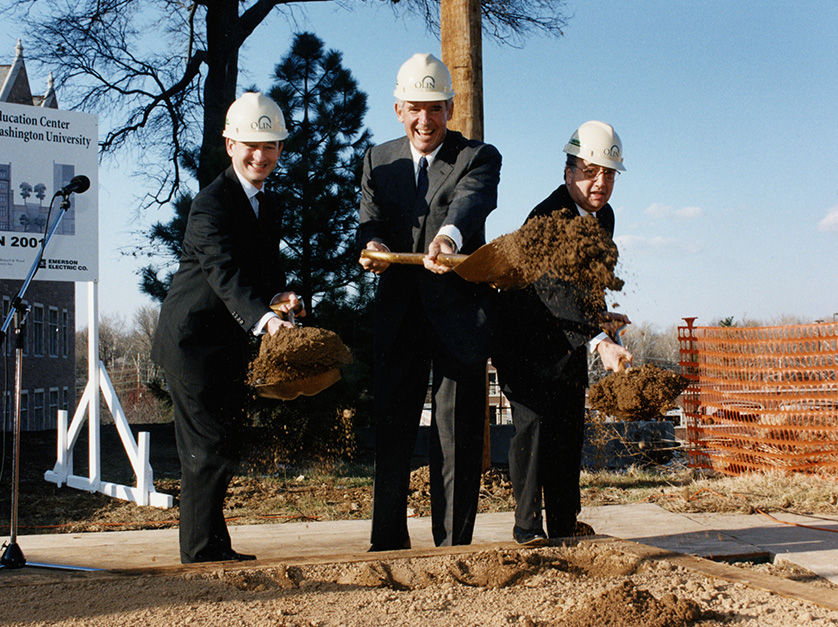

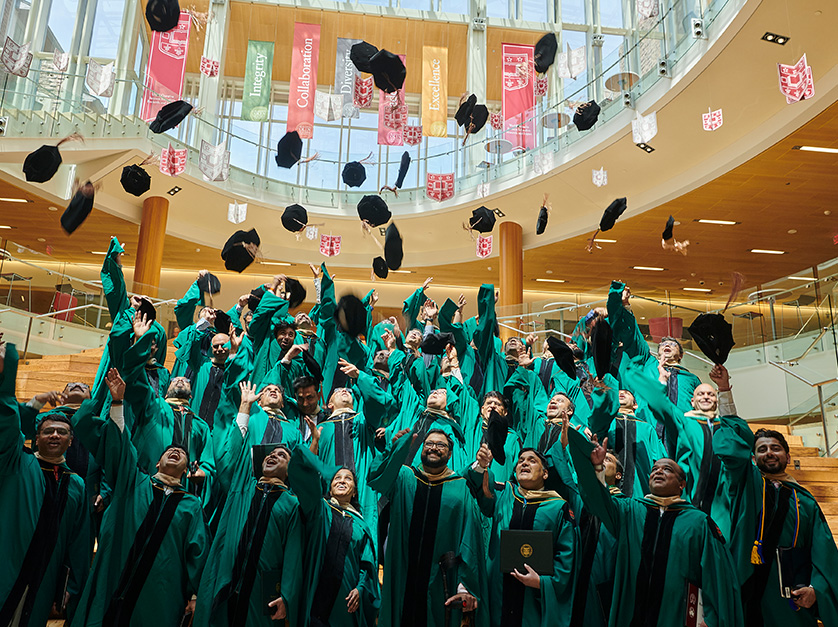
There’s a better way to do anything, if you will put your mind to work.
—John M. Olin